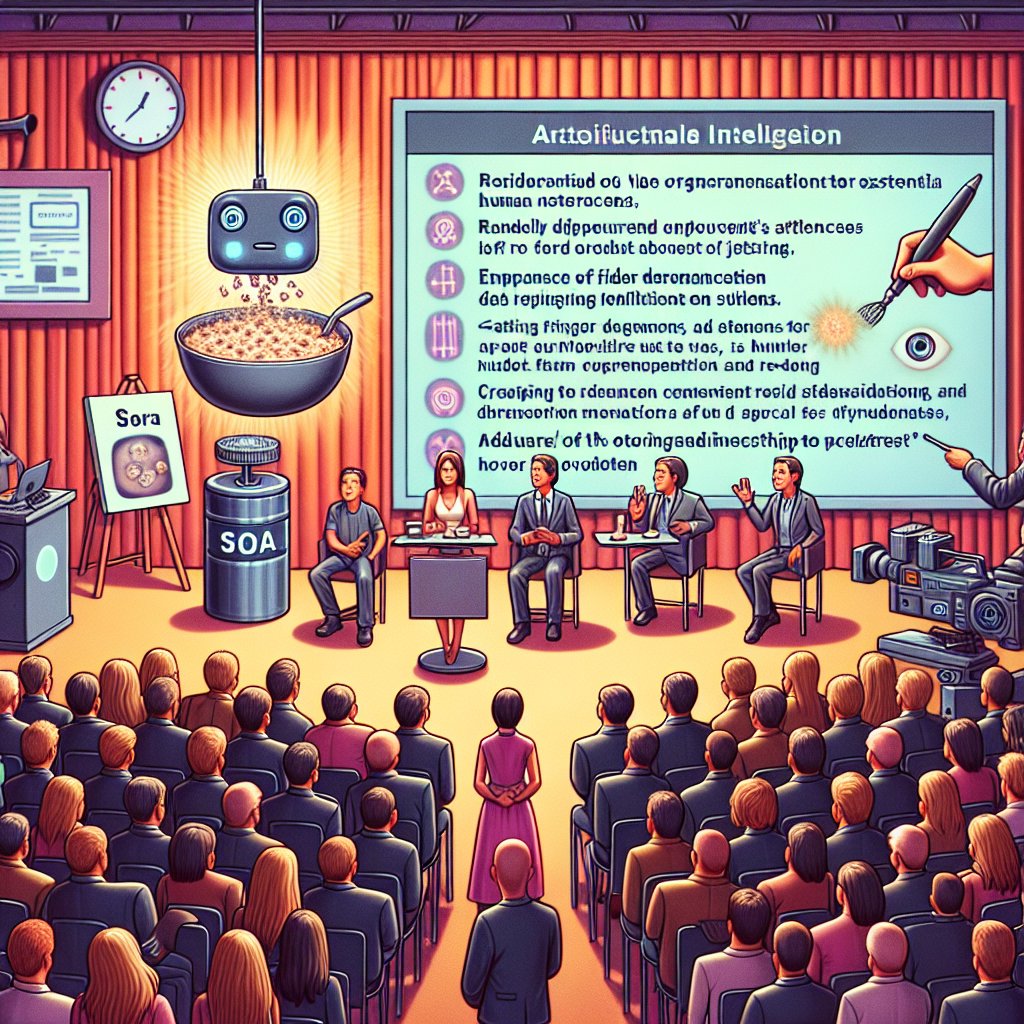Image created by AI
The AI Revolution in Hollywood: OpenAI's Sora Shakes the Film Industry
The unveiling of OpenAI's latest artificial intelligence marvel, 'Sora,' has sent ripples through Hollywood's glitzy façade, challenging the livelihoods of its creative caste. Sora, an AI text-to-video generator akin to its textual sibling ChatGPT, has raised alarms concerning the potential obsolescence of human jobs in the film industry.
Amidst the growing apprehension, several creative professionals have been invited to bear witness to Sora's capabilities. Reports from these first impressions herald a dichotomous future: one where creative efforts are enhanced by AI, and one where those same crafts face existential threats. A Hollywood executive has likened the experience to confronting "our murderer," yet acknowledged the undeniable allure and power of the tool.
Tyler Perry, the prominent actor and studio owner, expressed substantial concerns over the impact of Sora on jobs, stalling his studio's expansion plans. Sora's capacity to replicate everything from camera shots to lighting on the fly means the way films are produced could undergo a revolutionary transformation.
Notwithstanding, the technology is not without its imperfections. Demonstrations show occasional glitches, such as a disappearing spoon during a so-called "instructional cooking session" video. Sora's occasional errors offer some reassurance that human discernment is still essential in digital content creation.
But the perturbation isn't solely about job security. The advent of AI video generation raises profound legal and ethical questions. Who exactly has ownership of content that Sora regenerates from existing images and videos? Notions of authorship and copyright are cast into uncharted waters, making it hard to predict how the industry will adjust to these disruptions.
Wallace Collins, an entertainment lawyer, cautions that without pragmatic regulation, Sora could become a tool for malfeasance, capable of fabricating distressing and misleading video content. Meanwhile, legal battles rage over AI's role in copyright infringement, with cases like the New York Times versus OpenAI hinting at the complex entanglements that lie ahead for AI-generated content.
As we stand on the brink of an AI-induced paradigm shift in film production, one thing is clear: the tug-of-war between technological innovation and human creativity will redefine the contours of the movie-making landscape.










